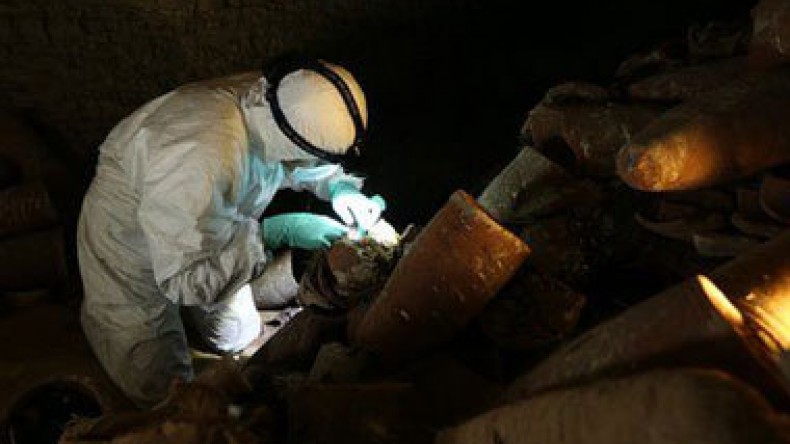
Egypt's animal mummy 'scandal' revealed
Scientists say they have exposed a scandal at the heart of Ancient Egypt's animal mummy industry, the BBC reports.
A scanning project at Manchester Museum and the University of Manchester has revealed that about a third of the bundles of cloth are empty inside.
Researchers believe there was a huge appetite for these religious offerings, and demand for the mummies may have outstripped supply.
The project has been followed by the BBC's Horizon programme.
The research team has been conducting the largest scanning project of its kind.
More than 800 mummies, ranging from cats and birds to crocodiles, have so far been analysed using X-rays and CT scans.
About a third of those scanned contain complete animals, which have been remarkably well preserved.
Another third contain partial remains - but the rest have been empty.
Dr Lidija McKnight, an Egyptologist from the University of Manchester, said: "There have been some surprises.
"We always knew that not all animal mummies contained what we expected them to contain, but we found around a third don't contain any animal material at all - so no skeletal remains."
Instead, she explained, the linen was padded out with other items.
"Basically, organic material such as mud, sticks and reeds, that would have been lying around the embalmers workshops, and also things like eggshells and feathers, which were associated with the animals, but aren't the animals themselves."
Newsfeed
Videos






























